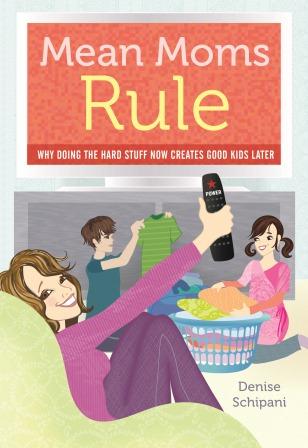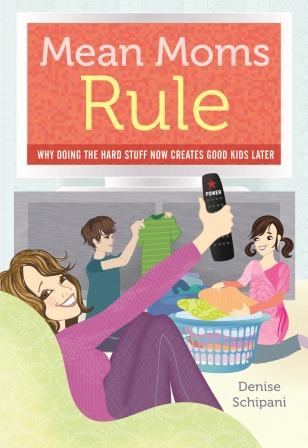I don’t read a lot of parenting books. Any more, I mean.
From the time we first started trying to conceive until Harry was about 3, there was usually a book or seven on my nightstand that promised to help me avoid the horrific damage I was sure to cause if I didn’t read that particular tome. Books on getting pregnant (my fave: Taking Charge of Your Fertility, valuable even if you’re not making babies—I had no idea how my ladyparts worked until I read it), pregnancy itself, childbirth, breastfeeding, sleeping (we Ferberized—I read them all and it worked for us), babies’ general health & welfare, even baby food cookbooks (before I figured out that I could feed my baby the same food I was cooking for me & Stephen).
We live in a world of experts, offering parents often-conflicting advice. Eventually I realized that nobody knows what’s best for my family than my husband and I, so I stopped with the books. Except for Child of Mine: Feeding with Love and Good Sense, which is never more than about 10 feet away.
This is why you’ll hardly ever see me mention a parenting book here. This is also why I’m so excited to tell you about a new parenting book you should run right out and buy.
It’s called Mean Moms Rule: Why Doing the Hard Stuff Now Creates Good Kids Later, by Denise Schipani. I’ve known Denise casually for years, from parenting-writers’ circles—she wrote a guest post for this very blog a while back—so you may suspect I’m endorsing her book because of that. Think again. Denise is the kind of mom I want to be: She’s raising her two boys to be kind, thoughtful, self-reliant human beings, all the while maintaining her sanity. Not bad, right?
Mean Moms Rule is Denise’s no-nonsense, reassuring, funny, and above all empowering take on parenting. She’s not telling you her way is the only way, or that it’s scientifically proven that xyz will result in abc. She’s not trying to convince you that there’s a right way to parent. She’s just calling it like she sees it:
- That we, the parents, are every bit as important as our children.
- That if we say “no” more than we say “yes,” those “yesses” will actually count for something.
- That we should be preparing our children for the world, and not vice versa.
My favorite chapter is about teaching life skills—everything from how to vacuum to how to cross the street. In it, Denise reminds us of how good it feels to learn how to do something properly, to have responsibility. As Denise says in the book:
It’s not just knowing how to wash a car or mow a lawn all by itself, or about the responsibility and entrepreneurship it might teach, but about the feeling of competency and agency and maturity that comes with knowing how to do “adult” stuff, and do it well.
My childhood was a long time ago, but I clearly remember the chores rotated among me and my brothers: in addition to keeping our own rooms clean (ha!), we’d take turns setting and clearing the table, washing the dishes (everyone’s least favorite—dishes, pots, and pans for 6 people + no dishwasher = a lot of work), taking out the garbage, doing the laundry, dusting, helping my mom with the grocery shopping, and whatever we could handle in the kitchen. I don’t recall being taught how to use a knife. I just recall chopping. To be clear: I hated all this. Bitched and complained every chance I got. But am I happy about it now? You betcha.
Stephen and I are trying really hard to do what Denise talks about here, to raise Harry to feel comfortable doing—he “cleans” his room before bed each night, and if he’s anywhere near the kitchen before dinnertime he’s in charge of setting the table. He’s been using his own set of kid-friendly knives since he was three, and Stephen taught him to use a screwdriver. At five, I think he’s too young for official chores yet (and to be honest, he’s no better at cleaning his room than I was), but I’ve already told him how excited I am for the day he’s old enough to wash the dishes.
How about you? When did you start teaching your kids to do stuff around the house?

